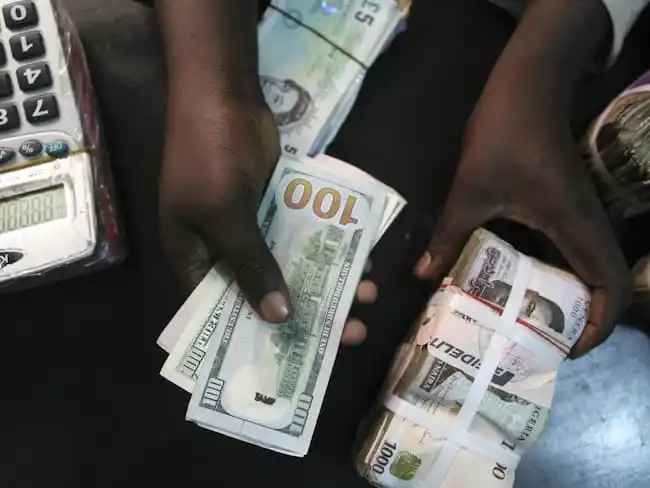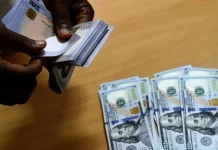Dollar to Naira exchange rate for today 4 January 2024, on BizwatchNigeria.
How much is naira to dollar exchange rate today?
The exchange rate between the Naira and the US dollar according to the data released on the FMDQ Security Exchange the official forex trading portal showed that the Naira opened at ₦932.67 per dollar on Wednesday, January 3, 2023, and closed at ₦1035.12 per $1 on Wednesday, January 3, 2024.
Naira traded as high as N932 to the dollar at the investors and exporters (I&E) window and closed at on N1035 on Wednesday.
Dollar to naira exchange rate today black market (Aboki dollar rate):
The exchange rate for a dollar to naira at Lagos Parallel Market (Black Market) players buy a dollar for N1220 and sell at N1230 on Wednesday 3rd January 2024, according to sources at Bureau De Change (BDC).
Please note that the Central Bank of Nigeria (CBN) does not recognize the parallel market (black market), as it has directed individuals who want to engage in Forex to approach their respective banks.
Dollar to Naira Black Market Rate Today
| Dollar to Naira (USD to NGN) | Black Market Exchange Rate Today |
| Buying Rate | N1220 |
| Selling Rate | N1230 |
Dollar to Naira CBN Rate Today
| Dollar to Naira (USD to NGN) | CBN Rate Today |
| Buying Rate | 913 |
| Selling Rate | 914 |
Please note that the rates you buy or sell forex may be different from what is captured in this article because prices vary.
Factors Affecting the Naira to Dollar Exchange Rate
The exchange rate of the US dollar to Nigerian Naira is affected by various factors, including:
- Economic stability: A country’s economic stability is a major determinant of its exchange rate. Nigeria’s economy is largely dependent on oil exports, which makes it susceptible to fluctuations in the global oil market.
- Political stability: The political climate of a country also affects its exchange rate. Nigeria has a history of political instability, which can affect investors’ confidence in the country’s economy.
- Inflation: Inflation rates can also impact the exchange rate between two currencies. Nigeria has had a history of high inflation rates, which has contributed to the devaluation of the Naira.
- International trade: The exchange rate can also be affected by international trade. Nigeria is a major importer of goods, and its imports are largely paid for in foreign currency, such as the US dollar.













